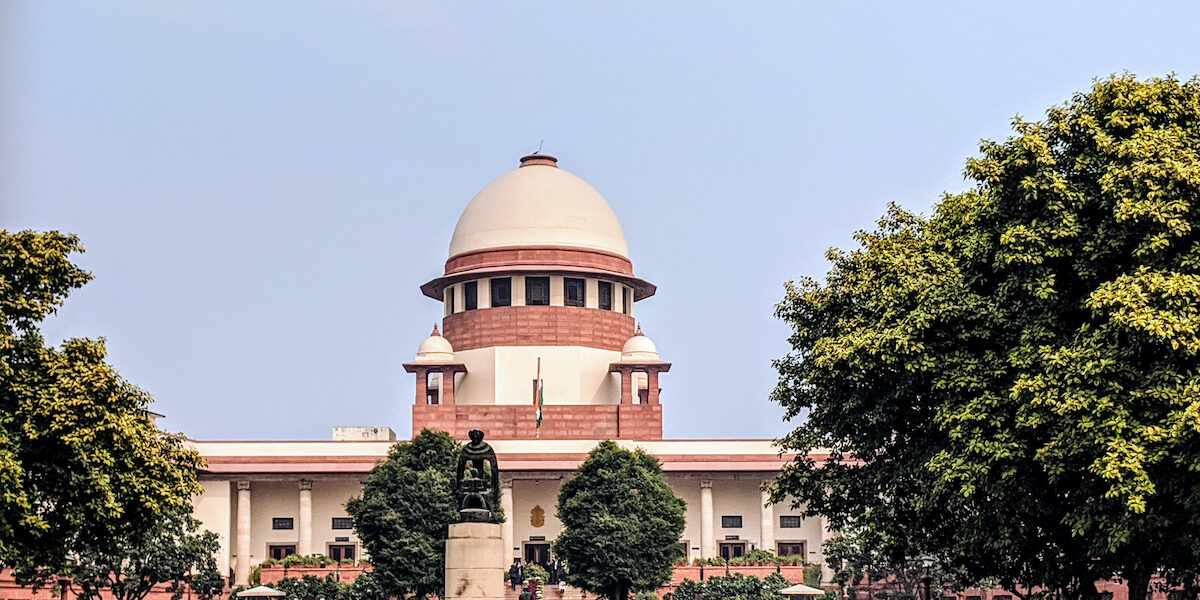Similar pleas by Tamil Nadu and Kerala against their Governors are to be clubbed with the plea by the AAP-ruled Punjab.

The Supreme Court of India. (iStock)
The Supreme Court on Monday, 6 November, expressed its concerns over state governments approaching courts subsequent to Governors not acting on the Bills passed by the legislature.
The apex court called for soul-searching by state Governors and other constitutional functionaries on the discharge of their functions, and wonderied why they acted on matters before them only when state governments knocked its (Supreme Court) door for intervention.
Heading a bench also comprising Justice JB Pardiwala and Justice Manoj Misra, Chief Justice DY Chandrachud remarked: “There has to be a little of soul-searching by all, by the Governors. Governors must act even before the matter comes to the Supreme Court. This has to come to an end when Governors act only when matters reach the Supreme Court.”
The top court reprimanded the Governors in the Opposition-ruled states in the course of the hearing of a plea by the Aam Aadmi Party (AAP)-ruled Punjab, which approached the court against state Governor Banwarilal Purohit for sitting over four Bills passed by the state Assembly.
The court posted the matter for further hearing on Friday, 9 November, tagging it with similar pleas moved by the Kerala and Tamil Nadu governments.
The Punjab Bills include one related to gurudwaras and three sent to him for recommendation to be introduced in the state Assembly relating to fiscal issues.
While hearing the Punjab matter, CJI Chandrachud made a reference to the Telangana situation. Former Attorney General and senior advocate KK Venugopal urged the bench to tag the petitions by the Kerala and Tamil Nadu governments with the Punjab petition.
The Tamil Nadu plea is related to inaction by the state Governor RN Ravi in clearing the Bills passed by the state Assembly and the orders and policies of the state government.
“The Governor does not take action on the Bills that have been passed for the welfare of the people. And after reports were published about the state filing the petition, he says he will see it in the court,” Venugopal said requesting the bench to post Kerala’s petition as well on Friday.
The CJI also criticised the state Governors saying that they were not elected representatives.
“This happened in another state also. Why does the party have to come to the Supreme Court? The Governor has to pass. You come to the Supreme Court, then the Governor starts acting. This shouldn’t be. The Governor, of course, has the power to reserve the Bill,” said the CJI.
However, Chief Justice Chandrachud took exception to the way the Punjab Assembly was adjourned sine a die on 22 March and reconvened on 26 June, wondering if the budget session of the state Assembly merged with the monsoon session.
Chandrachud said that the session could have been prorogued and reconvened.
In the hearing on Friday, Solicitor General Tushar Mehta would apprise the court of the action taken by Governor Purohit.
In the course of the hearing Solicitor General Mehta, appearing for Governor Purohit, informed the court that he (the Governor) has taken some decisions on the matters pending before him.
In its order, the bench said that the Punjab government has stated that as many as seven Bills including fiscal Bills were passed by the Vidhan Sabha and submitted to the Governor.
The order further recorded that it is stated that the Bills were not dealt with by the Governor in the manner required by Article 200 of the Indian Constitution.
In two Bills the Governor has taken action. Senior advocate Singhvi submitted that the ground taken by the Governor was that the session ought to have been prorogued on 22 March and thereafter reconvened.
Besides Punjab, Tamil Nadu and Kerala had already moved the top court seeking direction to the respective state Governors to act on the matters pending before them, including the Bills passed by the state Assembly.

Jul 26, 2024

Jul 24, 2024

Jul 23, 2024

Jul 23, 2024

Jul 20, 2024

Jul 20, 2024